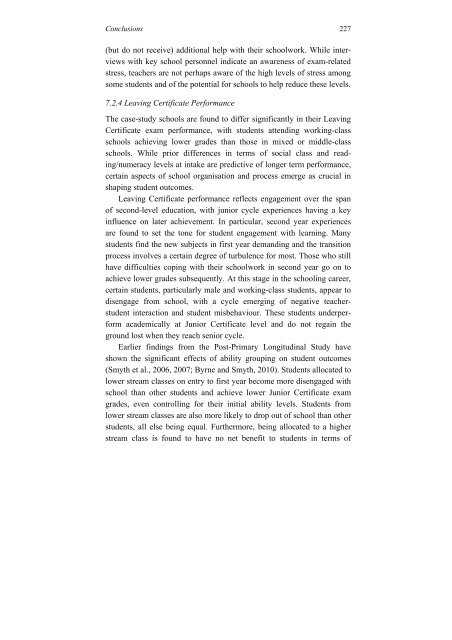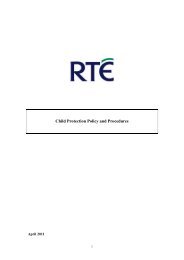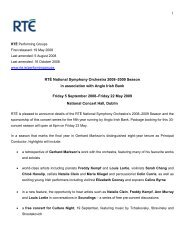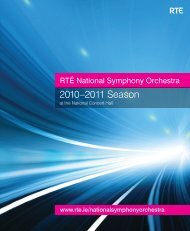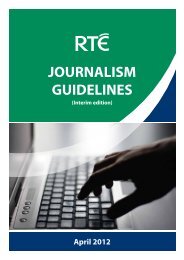From Leaving CertiFiCate to Leaving SChooL a Longitudinal Study ...
From Leaving CertiFiCate to Leaving SChooL a Longitudinal Study ...
From Leaving CertiFiCate to Leaving SChooL a Longitudinal Study ...
Create successful ePaper yourself
Turn your PDF publications into a flip-book with our unique Google optimized e-Paper software.
Conclusions 227<br />
(but do not receive) additional help with their schoolwork. While interviews<br />
with key school personnel indicate an awareness of exam-related<br />
stress, teachers are not perhaps aware of the high levels of stress among<br />
some students and of the potential for schools <strong>to</strong> help reduce these levels.<br />
7.2.4 <strong>Leaving</strong> Certificate Performance<br />
The case-study schools are found <strong>to</strong> differ significantly in their <strong>Leaving</strong><br />
Certificate exam performance, with students attending working-class<br />
schools achieving lower grades than those in mixed or middle-class<br />
schools. While prior differences in terms of social class and reading/numeracy<br />
levels at intake are predictive of longer term performance,<br />
certain aspects of school organisation and process emerge as crucial in<br />
shaping student outcomes.<br />
<strong>Leaving</strong> Certificate performance reflects engagement over the span<br />
of second-level education, with junior cycle experiences having a key<br />
influence on later achievement. In particular, second year experiences<br />
are found <strong>to</strong> set the <strong>to</strong>ne for student engagement with learning. Many<br />
students find the new subjects in first year demanding and the transition<br />
process involves a certain degree of turbulence for most. Those who still<br />
have difficulties coping with their schoolwork in second year go on <strong>to</strong><br />
achieve lower grades subsequently. At this stage in the schooling career,<br />
certain students, particularly male and working-class students, appear <strong>to</strong><br />
disengage from school, with a cycle emerging of negative teacherstudent<br />
interaction and student misbehaviour. These students underperform<br />
academically at Junior Certificate level and do not regain the<br />
ground lost when they reach senior cycle.<br />
Earlier findings from the Post-Primary <strong>Longitudinal</strong> <strong>Study</strong> have<br />
shown the significant effects of ability grouping on student outcomes<br />
(Smyth et al., 2006, 2007; Byrne and Smyth, 2010). Students allocated <strong>to</strong><br />
lower stream classes on entry <strong>to</strong> first year become more disengaged with<br />
school than other students and achieve lower Junior Certificate exam<br />
grades, even controlling for their initial ability levels. Students from<br />
lower stream classes are also more likely <strong>to</strong> drop out of school than other<br />
students, all else being equal. Furthermore, being allocated <strong>to</strong> a higher<br />
stream class is found <strong>to</strong> have no net benefit <strong>to</strong> students in terms of


